Iran-Backed Houthis Call Saudi-Led Yemen Ceasefire Meaningless

As the Saudi-led coalition in Yemen has announced a ceasefire, Iran-backed Houthis have called the measure “meaningless” if the siege against the rebels is in full effect.

As the Saudi-led coalition in Yemen has announced a ceasefire, Iran-backed Houthis have called the measure “meaningless” if the siege against the rebels is in full effect.
Mohammed al-Bukhaiti, a senior member of Ansarullah's political bureau made the comment in a post on his Twitter page on Wednesday, a few hours after the coalition halted military operations for the holy Muslim month of Ramadan.
“The Yemen blockade is considered a military action because it was imposed by force of arms. If the siege is not lifted, the coalition’s announcement of the cessation of military operations will be meaningless”, he said.
The cessation of military operations coincides with the launch of Yemeni-Yemeni consultations that began at the GCC headquarters in Saudi Arabia on Wednesday and are expected to run until April 7.
The US special envoy for Yemen, Tim Lenderking, appreciated the Arab Coalition’s decision to start a ceasefire, saying that Washington encourages the recent announcement.
“A peaceful solution is the only way to end the crisis in Yemen,” the Secretary General of the GCC Nayef al-Hajraf said during a speech at the opening session, noting “the Riyadh Agreement constitutes a road map in Yemen and the completion of its provisions is a Yemeni demand.”
The United States, its Western allies and others blame Iran’s drones and missiles for attacks by Houthis on Saudi and Emirati energy facilities.
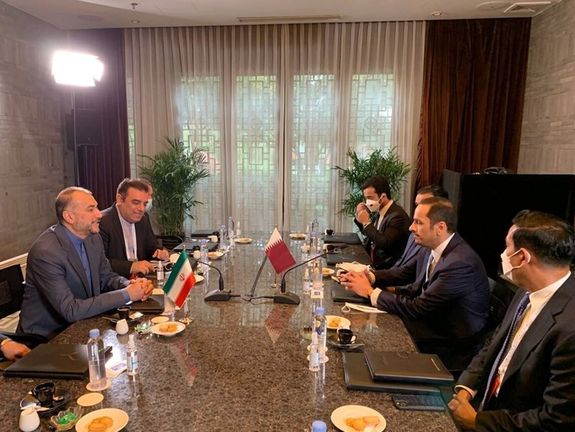
The United States, China and Russia will discuss Afghanistan on the sidelines of a two-day meeting of neighboring countries in the Chinese province of Anhui.
Tom West, the US special representative for Afghanistan, will also attend a meeting of the so-called ‘extended troika,’ China, Russia and the US plus Pakistan, a US State Department spokesperson said.
Separately an on-line pledging event on humanitarian assistance for Afghanistan takes place Thursday convened by United Nation Secretary-General António Guterres. Including Germany, Qatar, and the United Kingdom, it is not expected to discuss calls for the US and Europe to release $9 billion of Afghan foreign exchange, so enabling the government to pay bills and salaries.
The talks come with 98 percent of Afghans short of food in an economic crisis heightened since August’s US military withdrawal, but prospects for unfreezing Afghan assets appear to have receded with European and the US criticizing a Taliban decision to preclude girls from secondary schools.
In his first visit to China since Russian invaded Ukraine, Foreign Minister Sergei Lavrov met Chinese Foreign Minister Wang Yi, who is hosting the meetings on Afghanistan, which are set to include representatives from the Taliban as well as neighboring Pakistan, Iran, Tajikistan, Turkmenistan, and Uzbekistan. Qatar and Indonesia also attend.
Iranian Foreign Minister Hossein Amir-Abdollahian has already met with his Qatari counterpart Mohammed bin Abdulrahman bin Jassim al-Thani and Pakistani foreign minister Shah Mahmood Qureshi.
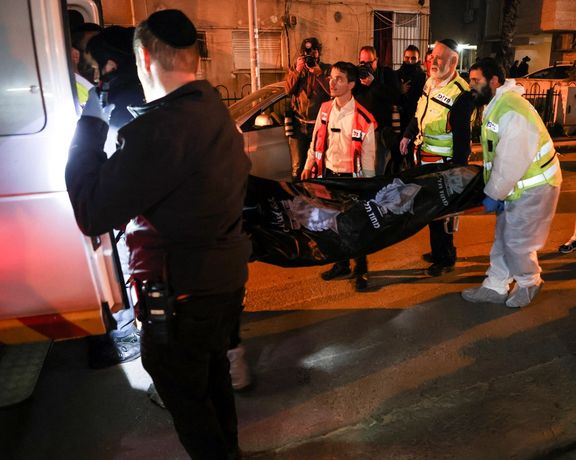
Iran-backed Lebanese Hezbollah has praised the attacker who killed five Israelis in a suburb of Tel Aviv in the third deadly attack of its kind in a week.
Describing the assailant who was shot dead as a “martyr”, Hezbollah issued a statement on Wednesday to reiterate its support for the attack on Tuesday in Bnei Brak (Video), one of the country's most populous ultra-Orthodox Jewish areas.
The statement said that normalization of relation with some Arab states will not provide security for Israel, nor will it reduce the “Palestinians' determination to liberate their land”, adding "there is no safe place for the occupation settlers and its soldiers”.
The Palestinian militant group Hamas, which governs the Gaza Strip, also praised the attack, saying, "We express our blessing to the Tel Aviv operation."
Iranian media affiliated with the Revolutionary Guard (IRGC) covered Hezbollah’s praise for the attack.
Al Mayadeen TV, a media close to the Lebanese militant organization, posted a video of Hezbollah forces celebrating the attack and distributing sweets among the people.
Palestinian President Mahmoud Abbas, however, condemned the killings of the Israelis and warned that the attack might lead to escalation at a time when "we are striving for stability".
Israeli Prime Minister Naftali Bennett told an emergency security meeting that "Israel is facing a wave of murderous Arab terrorism. We will fight terror with perseverance, stubbornness and an iron fist."
US Secretary of State Antony Blinken also condemned the attack, saying, "This violence is unacceptable”.
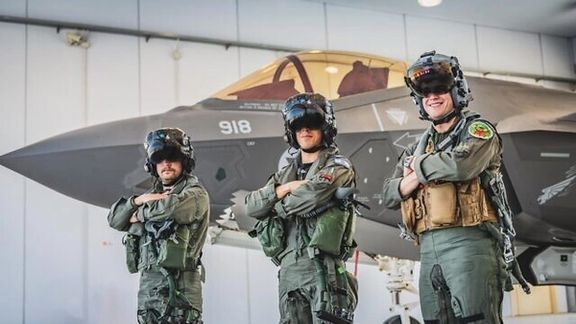
Unnamed Israeli military officials have told local media that an air defense pact with friendly regional countries is in the works to confront Iranian threats.
The news comes in the wake of a two-day meeting on March 27-28 in Israel, dubbed the ‘Negev Summit’ that brought together foreign ministers from four Arab states, Israel and the United States.
The officials, speaking to Hebrew language media said that Israel may soon sign an “alliance” with regional partners to confront Iranian drones and missiles. According to these officials, already a system has been established to jointly track Iranian air activities in the region.
The United Arab Emirates and Bahrain, now having full diplomatic relations and cooperation with Israel fall within the immediate Iranian threat zone. Saudi Arabia, which has not normalized relations with Israel due to the Palestinian issue, is said to have secret ties with the Jewish state, as both countries share deep concerns over Iran.
Houthi rebels, assisted by Iranian military hardware, have been launching regular attacks against Saudi Arabia. Just last week, a fierce Houthi drone and missile attack hit oil installations in the country at a time of high oil prices and uncertainty about Russian energy supplies to world markets.
The UAE and Bahrain, geographically closer to Iran, can play an important role in strengthening a coordinated detection and air defense system.
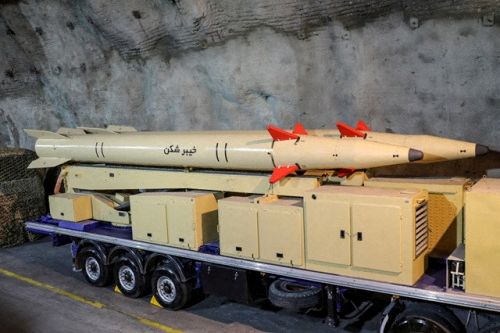
As Iran proliferates military drones among its proxy forces in the region, threatening Israel and others, the officials quoted by the media confirmed that hundreds of air strikes have taken place against Iranian targets in the region. Since 2017, Iranian forces and bases in Syria have sustained regular air strikes, but Israel had rarely taken responsibility.
Meanwhile, US Secretary of State Antony Blinken, having attended the Negev Summit, continued his efforts to reassure Arab allies in the Persian Gulf of American commitment to their security.
Blinken met with Abu Dhabi Crown Prince Sheikh Mohammed bin Zayed al-Nahyan, de facto ruler of the United Arab Emirates, in Morocco. Unusually for a US secretary of state, Blinken's trip to the Middle East and North Africa did not include any stops in the Persian Gulf monarchies or talks with Saudi officials.
Washington's Arab allies chafe at what they see as declining US commitment to security in their region in the face of Iranian involvement in Yemen, Iraq, Syria and Lebanon which has nudged them into common cause with former arch-foe Israel.
"We have real challenges to confront together, in the region and beyond," Blinken said at the start of the meeting with Sheikh Mohammed at the crown prince's private residence in Rabat.
The first challenge Blinken cited was a series of missile attacks by the Houthis against the UAE and Saudi Arabia.
"We're determined to do everything we can to help you defend yourselves effectively against that," Blinken said, adding that he would also consult the Emirati leader on attempts to revive the 2015 Iran nuclear deal and strengthening collective security regarding Iran.
Sheikh Mohammed said the meeting was "a very important opportunity" and "I'm sure we have a lot to talk about, especially our bilateral relationship."
Saudi and Emirati relations with Washington are strained because of a number of Biden administration policies, including removing Yemen’s Houthis from the US list of terrorist organizations and trying to revive the 2015 nuclear deal with Iran that would release tens of billions of dollars to Tehran apparently without adequate guarantees of security for regional countries.
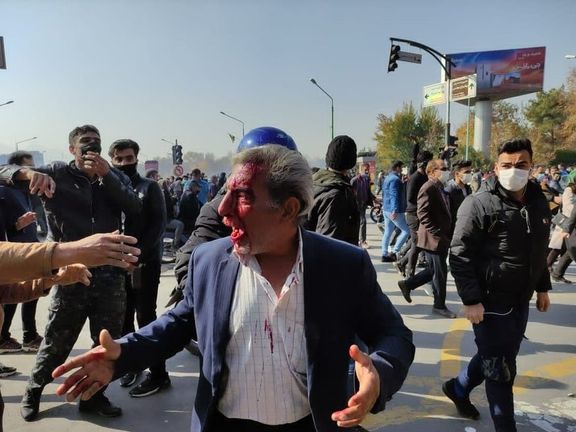
Amnesty International has rebuked Iran for routinely repressing citizens and "systemic impunity" of officials for "past and ongoing crimes against humanity".
Several thousand men, women and children – including protesters, journalists, dissidents, artists, writers, teachers, and dual nationals -- were interrogated, unfairly prosecuted and/or arbitrarily detained solely for peacefully exercising their rights to freedom of expression, association and assembly, and hundreds remained unjustly imprisoned, the global rights watchdog's annual report released on Wednesday said.
Iran witnessed several widespread protests during 2021, including protests over water shortage in Khuzestan and Esfahan while teachers, workers, nurses, and pensioners had to resort to recurring protests demanding improvement in their livelihoods. Security forces dispersed peaceful gatherings in most cases and even resorted to using lethal force in Khuzestan in July.
"Torture and other ill-treatment, including denying prisoners adequate medical care, remained widespread and systematic, especially during interrogation," the report said, adding that torture-tainted “confessions” were broadcast on state television and consistently used to issue convictions.
The death penalty was used widely, including as a weapon of repression, according to the report, and executions were carried out after unfair trials while systemic impunity prevailed for past and ongoing crimes against humanity related to prison massacres in 1988 and other crimes under international law.
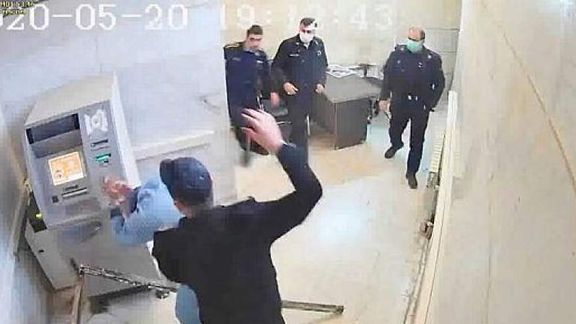
The report criticized the country's presidential elections of June 2021 which it said were held "in a repressive environment with a markedly low turnout" to bring to power Ebrahim Raisi who should have been investigated for crimes against humanity related to the mass enforced disappearances and extrajudicial executions of 1988. This, the report said, reflects "systemic impunity in Iran."
In the same elections, authorities barred women, members of religious minorities and critics from running, and threatened to prosecute anyone encouraging election boycott, Amnesty said.
The report also criticized the Islamic Republic for "entrenched discrimination and violence," "undermining sexual and reproductive rights," violating the right to freedom of religion and belief, and limiting access to the internet.
In July, parliament fast-tracked preparations for a bill that is expected to be adopted in 2022, which would criminalize the production and distribution of internet censorship circumvention tools and intensify surveillance.
The global watchdog said Iranian authorities also failed to ensure timely and equitable access to Covid-19 vaccines. Supreme Leader Ali Khamenei, banned Importing Covid vaccines from the US and Britain on January 8, 2021 when the World Health Organization (WHO) had only approved the US-made Pfizer, Moderna and British-made AstraZeneca vaccines.
Iranians had to wait for months for Chinese, Russian and homegrown vaccines, while a severe wave of infection in summer killed tens-of-thousands of people. By August, less than 6 percent of Iranians had been vaccinated but the ban was lifted that month, when Raisi took over from his predecessor, Hassan Rouhani, whose efforts to procure vaccines had been stymied by the ban. Hardliners claimed Khamenei had never banned foreign vaccines.
The report also highlighted the arbitrary arrest of six people, including five lawyers and a civil rights activist, in August for holding a meeting to discuss taking legal action against authorities for mismanagement of the pandemic and delay in mass vaccination.
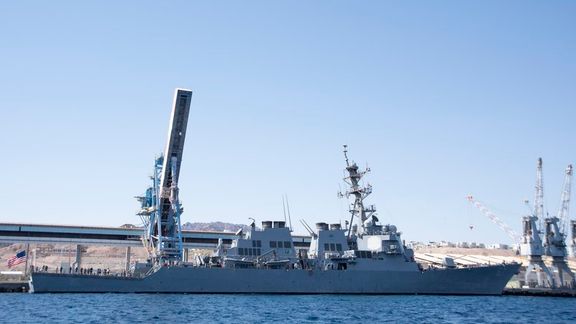
With the United States and Israel in ten-day naval maneuvers, Senator Lindsey Graham has said an Israeli attack on Iran is “probably the way this movie ends.”
As the ‘Negev Summit’ − where Israel hosted the foreign ministers of Bahrain, Egypt, Morocco, the United Arab Emirates, and the United States − began Sunday, the US Fifth Fleet and the Israeli navy began a maritime exercise in the Mediterranean and Red Sea.
Israel’s ambassador to Manama, Eitan Naeh, said Monday that Israel would “soon” appoint a military attaché to the Fifth Fleet headquarters in Bahrain. While there have been reports that the Negev foreign ministers’ meeting discussed a possible military alliance, there has also been criticism of the meeting around the Arab world, especially for ignoring Palestinian rights, with Jordan’s King Abdullah pointedly making instead a visit to the occupied West Bank.
Dubbed “Intrinsic Defender,” the US-Israeli exercise focuses on ordnance disposal, “health topics”, and unmanned systems integration. More than 300 US personnel and various unmanned vessels are participating, including an ordnance disposal dive team and US coast guards.
US Navy guided-missile destroyer USS Cole – which has been operating in the 5th Fleet region since early January – and dry cargo ship USNS Wally Schirra are also scheduled to take part. The 5th Fleet operations area includes the Persian Gulf, Gulf of Oman, Red Sea, parts of the Indian Ocean, and three critical choke points at the Strait of Hormuz, Suez Canal, and Bab al-Mandeb.
B52s: ‘Maintaining security’
On Tuesday, the IDF published photos of two Israeli F-15 jets accompanying an American B-52 bomber, which crossed Israel from west to east on its way to the Gulf. A tweet described the flight as “a significant step in maintaining the security of the skies of the State of Israel and the Middle East.”
The Jerusalem Post reported Tuesday that Israel had carried out over 1,000 airstrikes in the past five years, hitting 1,200 targets with over 5,500 munitions during 408 missions. In 2021, 586 munitions were used against 174 targets.
The Post said 239 anti-aircraft missiles had been fired at Israeli jets, apparently referring to Syrian air defense, which includes Russian-made S-300s and S-400s. Israel has intelligence cooperation with Russia to reduce the chances of conflict with Russian forces – part of the reason for its lukewarm response to the US over Ukraine.
The way the movie ends
US Republican Senator Lindsey Graham said in an interview with Jewish Insider Mondaythat an Israeli attack on Iran was “probably” the only way to stop Iran from acquiring nuclear weapons. The senator, who supported former president Donald Trump in leaving the 2015 nuclear deal limiting Iran’s nuclear program, said that US ‘maximum pressure’ sanctions might not stop Iran from acquiring a nuclear weapon and that an Israeli attack was probable.
“If you don’t [understand] that, you’re making a huge mistake,” Graham said. He outlined three options – a “change of heart” by Iranian leader Ali Khamenei, a revolution in Iran, or an Israeli attack. “The first one is one in a billion. The second one − who knows − if the Iranian people want to continue to live like this, that’s up to them. But the third one is probably the way this movie ends.”